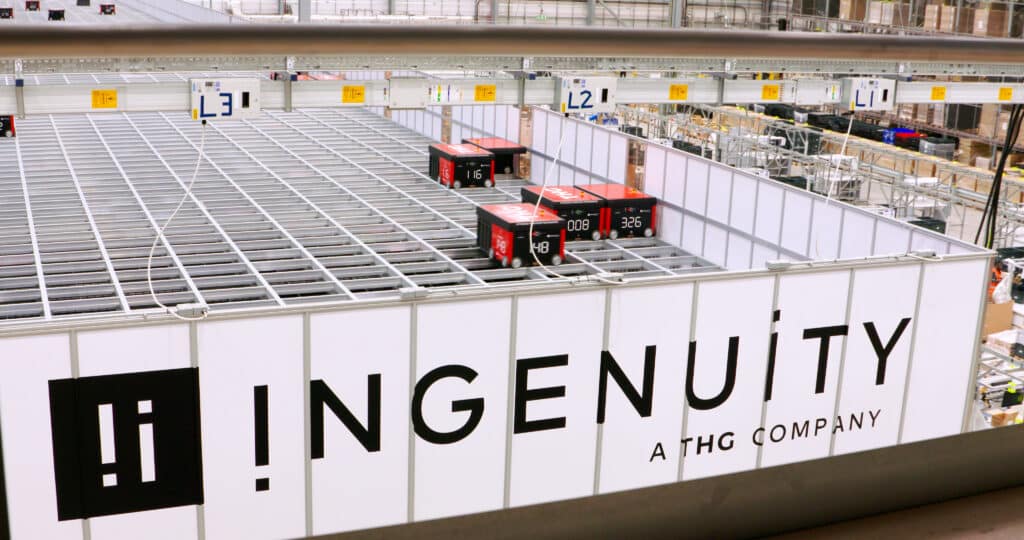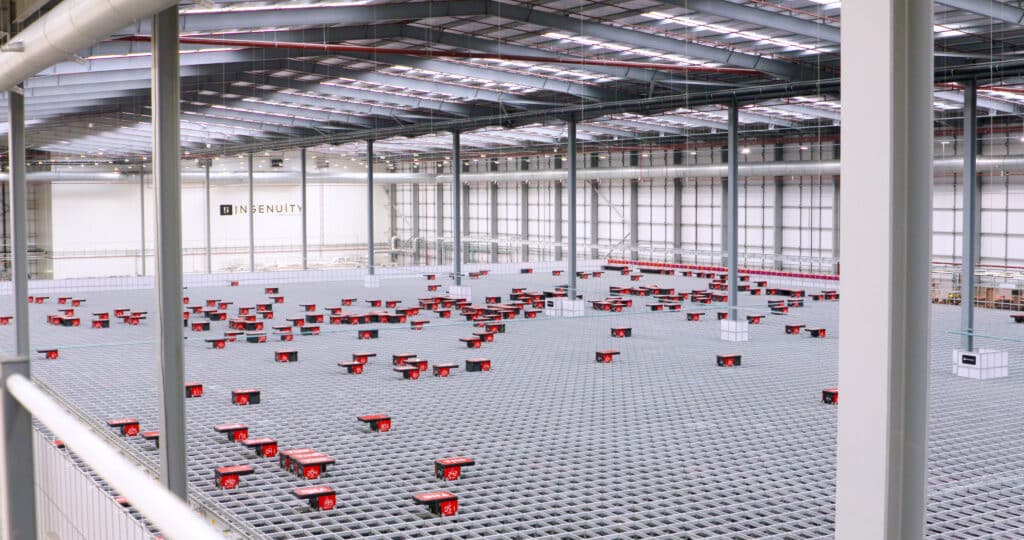It’s more than 12 months since Vivek Ganotra joined ecommerce group THG as CEO of the firm’s Ingenuity division.
THG often lands itself in the headlines, whether it’s deciphering outspoken founder Matthew Moulding’s lengthy LinkedIn posts, turmoil over shareholder revolts or surprising moves – such as the recent acquisition of London business paper City AM.
But Ingenuity, headquartered in Manchester with around 4,000 staff, is the “fabric and skeleton” of the group with its D2C tech and ecommerce platform. Working with global brands such as Nestle and Matalan, it’s one of three divisions under THG, which also includes THG Beauty and THG Nutrition.
When the group published half-year results on 14 September, despite positives such as a revenue boost for the Nutrition division up 2.6% to £340.7m, revenues had dipped by 14.9% at Ingenuity to £320m.
Behind the numbers, it’s all part of a “very clear strategy and direction” at THG Ingenuity that’s slowly coming to fruition by pivoting away from lower-value clients to larger, higher-value enterprise clients.
Speaking to Prolific North, Ganotra explained the “natural revenue lag” is expected as the division has shifted its strategy and continues to win new business.
“It’s an adjustment as we shift our focus to the right type of customer base. As we win new business, there is a natural revenue lag between us winning business to starting to recognise revenue because we go through an implementation phase with those customers.”
With new and expanded partnerships with the likes of L’Oreal Group, Matalan and Asda, it’s shaping up to be an even busier time at THG Ingenuity.
“We can see that trajectory already playing out with the customers we’ve won in H1 and early H2. For me, it’s about patiently executing our strategy quarter to quarter. We are seeing that our value proposition is resonating in the market.
“This will start to bear fruit as we go into 2024.”

But what does that strategy look like? In Ganotra’s first six months, he worked on “sharpening” the division’s proposition by listening to current and prospective customers.
“I think we’ve set a very clear strategy that we want to be a complete commerce solution that covers all the aspects of technology, marketing – both from a content perspective and performance perspective – as well as operations.”
Ingenuity’s strategy has shifted to now focus on “rapidly expanding into geographies”, with the US a key focus after winning work with brands such as L’Oreal, and firming up three key categories – beauty and nutrition; FMCG; and retail, specifically in fashion and apparel.
“Geographic expansion, combined with category focus, is essentially our strategy,” he explains. “On the back of our partnership with Matalan and other customers, that strategy is well set.
“Our growth on net new business in that enterprise sector is growing year-on-year, our growth with existing enterprise customers like Procter & Gamble and Nestle is growing in terms of doing more with them.
“I feel that the early signs of us pivoting and focusing on our strategy are working. But I would caveat it’s early days. It’s two quarters into a three year business plan that I presented to our board back in February and received their endorsement.”
“We are going omnichannel”
Although the world of digital commerce remains “hugely important” for brands following Covid, thanks to a number of factors such as operating costs “most brands are struggling with driving profitable growth online”.
The difference between “winners and losers” will be the brands able to simplify the consumer journey by integrating different channels.
“My view, having spent two decades in the consumer brand world, is that consumer brands are very good at getting to the back door of a retailer but they’re extremely poor at getting to the front door of a consumer. It’s a muscle that only Amazon, in my view, has mastered over the years.”
Once describing THG Ingenuity as a ‘superhighway for brands’ earlier in his tenure, he thinks it’s even more of a relevant statement 12 months later.

By becoming a ‘superhighway for brands’ THG has tested campaigns for its own nutrition brand Myprotein via the TikTok Shop, which rolled out in the UK last year. Following “success” with campaigns on the social platform, it’s now being rolled out as a social commerce product for all of the group’s brands.
“That’s an example of saying: ‘we have a superhighway built for this, you don’t have to go and solve it yourself because I’ve made all the mistakes that you don’t need to make. All you need to do is come join me on the highway.
“Increasingly, I think TikTok has very strong ambitions to take on Amazon in the world of commerce. It’s not just a platform to share content but actually do commerce.
“We, ourselves, are going omnichannel. Not necessarily going into big stores, but we are going into social marketplaces and working with brands like Matalan to truly build the full multi-channel experience.
“It remains the holy grail to really master it. Day-in day-out, driving consistency across channels is key. Social and TikTok are dialing up in importance from a commerce perspective but it’s not all about TikTok, it’s about balance. You need to have a very clear channel specific strategy, which is something brands are not investing enough time in.”
Aside from social commerce, AI is another big talking point across pretty much every industry at the moment. For THG, it has already been a “red thread” running through the business since 2018, from machine learning to generative AI tools.
“We have quietly been executing lots of gen AI experiments, some of them are already built into our products.”
One of those experiments is the trial of a data-driven tool called ‘foundation finder’ for LOOKFANTASTIC, aiming to enhance the customer experience online by matching their skin tone to a foundation.
“Typically, you would go into a store to an advisor who would do that skin tone match for your foundation. Here, we’ve brought that offline to online using generative AI. We’re now ready to bring it to the world.”
There’s similar work going on behind the scenes in the fashion sector, using AI to match accessories with outfits.
“We’re practitioners. Even before generative AI became famous, we were already there with Nvidia [AI platform] doing interesting things.
“I think our opportunity right now is to, with confidence, tell the world that we’re very much innovating on the edges of this journey.”












